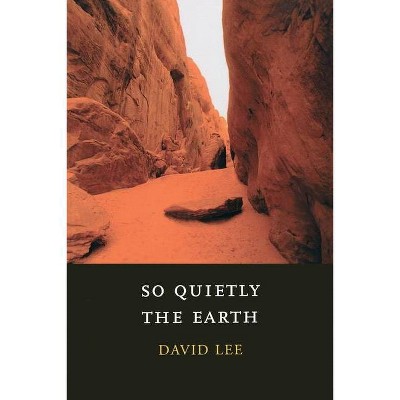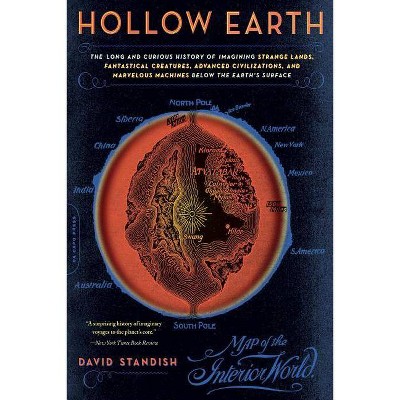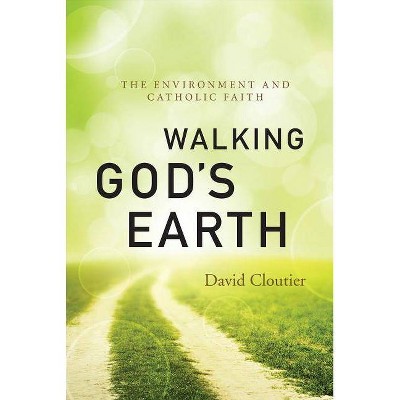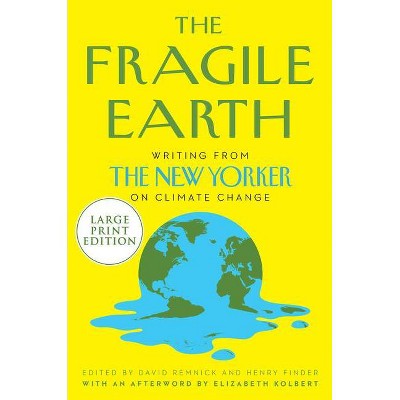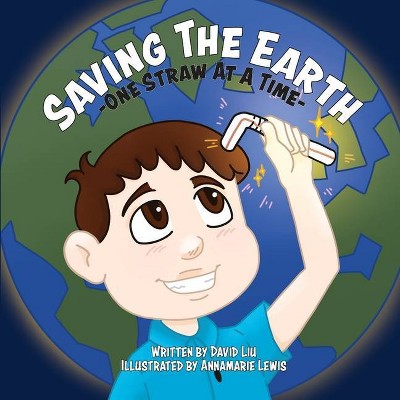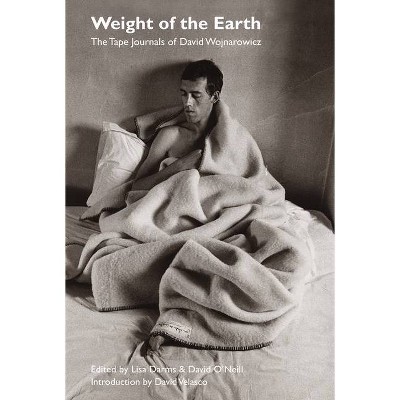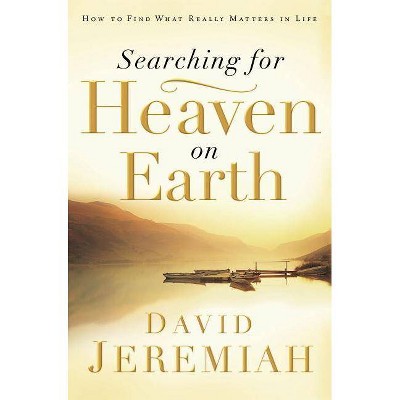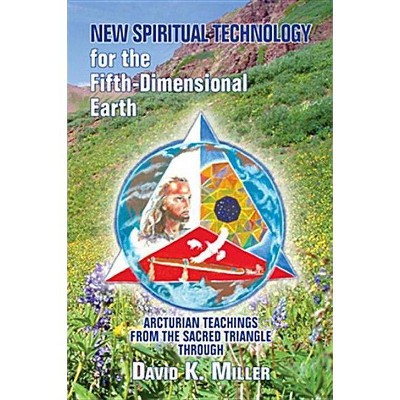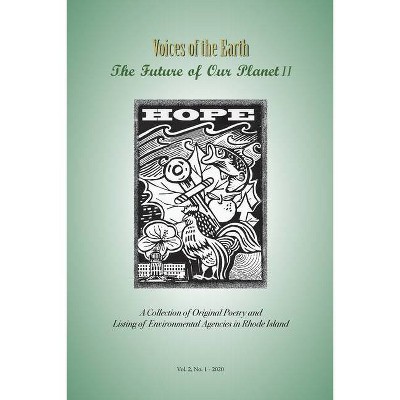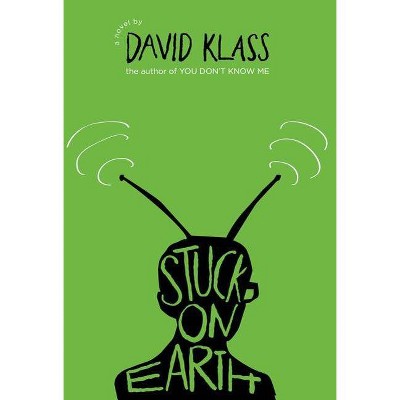The Uninhabitable Earth - by David Wallace-Wells (Paperback)
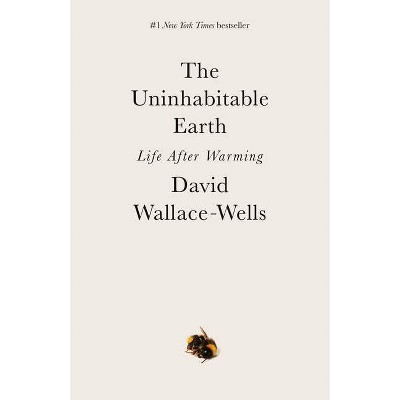
Similar Products
Products of same category from the store
AllProduct info
<p/><br></br><p><b> About the Book </b></p></br></br>"It is worse, much worse, than you think. If your anxiety about global warming is dominated by fears of sea-level rise, you are barely scratching the surface of what terrors are possible. In California, wildfires now rage year-round, destroying thousands of homes. Across the US, "500-year" storms pummel communities month after month, and floods displace tens of millions annually. This is only a preview of the changes to come. And they are coming fast. Without a revolution in how billions of humans conduct their lives, parts of the Earth could become close to uninhabitable, and other parts horrifically inhospitable, as soon as the end of this century. In his travelogue of our near future, David Wallace-Wells brings into stark relief the climate troubles that await -- food shortages, refugee emergencies, and other crises that will reshape the globe. But the world will be remade by warming in more profound ways as well, transforming our politics, our culture, our relationship to technology, and our sense of history. It will be all-encompassing, shaping and distorting nearly every aspect of human life as it is lived today. Like An Inconvenient Truth and Silent Spring before it, The Uninhabitable Earth is both a meditation on the devastation we have brought upon ourselves and an impassioned call to action. For just as the world was brought to the brink of catastrophe within the span of a lifetime, the responsibility to avoid it now belongs to a single generation"--<p/><br></br><p><b> Book Synopsis </b></p></br></br><b>#1 <i>NEW YORK TIMES</i> BESTSELLER - "<i>The Uninhabitable Earth</i> hits you like a comet, with an overflow of insanely lyrical prose about our pending Armageddon."--Andrew Solomon, author of <i>The Noonday Demon<br></i></b><br><b>With a new afterword</b> <p/>It is worse, much worse, than you think. If your anxiety about global warming is dominated by fears of sea-level rise, you are barely scratching the surface of what terrors are possible--food shortages, refugee emergencies, climate wars and economic devastation. <p/> An "epoch-defining book" (<i>The</i> <i>Guardian</i>) and "this generation's <i>Silent Spring</i>" (<i>The Washington Post</i>), <i>The Uninhabitable Earth</i> is both a travelogue of the near future and a meditation on how that future will look to those living through it--the ways that warming promises to transform global politics, the meaning of technology and nature in the modern world, the sustainability of capitalism and the trajectory of human progress. <p/> <i>The Uninhabitable Earth</i> is also an impassioned call to action. For just as the world was brought to the brink of catastrophe within the span of a lifetime, the responsibility to avoid it now belongs to a single generation--today's. <p/><b>Praise for <i>The Uninhabitable Earth</i></b> <p/><i>"The Uninhabitable Earth</i> is the most terrifying book I have ever read. Its subject is climate change, and its method is scientific, but its mode is Old Testament. The book is a meticulously documented, white-knuckled tour through the cascading catastrophes that will soon engulf our warming planet."<b>--Farhad Manjoo, <i>The New York Times</i></b><i><b><br></b></i><br>"Riveting. . . . Some readers will find Mr. Wallace-Wells's outline of possible futures alarmist. He is indeed alarmed. You should be, too."<b>--The Economist</b> <p/>"Potent and evocative. . . . Wallace-Wells has resolved to offer something other than the standard narrative of climate change. . . . He avoids the 'eerily banal language of climatology' in favor of lush, rolling prose."<b>--Jennifer Szalai, <i>The New York Times</i></b> <p/>"The book has potential to be this generation's <i>Silent Spring</i>."<i><b>--The Washington Post</b></i> <p/>"<i>The Uninhabitable Earth, </i> which has become a best seller, taps into the underlying emotion of the day: fear. . . . I encourage people to read this book."<b>--Alan Weisman, <i>The New York Review of Books</i></b><p/><br></br><p><b> Review Quotes </b></p></br></br><br><b>A <i>NEW YORK TIMES</i> EDITORS' CHOICE</b> <p/>"Potent and evocative. . . . Wallace-Wells has resolved to offer something other than the standard narrative of climate change. . . . He avoids the 'eerily banal language of climatology' in favor of lush, rolling prose." --<b>Jennifer Szalai, <i>The New York Times</i></b> <p/>"The book has potential to be this generation's <i>Silent Spring</i>."<i> <b>--The Washington Post</b></i> <p/>"<i>The Uninhabitable Earth, </i> which has become a best seller, taps into the underlying emotion of the day: fear. . . . I encourage people to read this book."<b>--Alan Weisman, <i>The New York Review of Books</i></b> <p/>Most of us know the gist, if not the details, of the climate change crisis. And yet it is almost impossible to sustain strong feelings about it. David Wallace-Wells has now provided the details, and with writing that is not only clear and forceful, but often imaginative and even funny, he has found a way to make the information deeply felt. <b><b>--Jonathan Safran Foer<b>, author of <i>Everything is Illuminated</i></b></b></b> <p/>"A brilliant new book. . . . a remorseless, near-unbearable account of what we are doing to our planet.--<b>John Lanchester, <i>The New York Times Book Review</i></b> <p/>David Wallace-Wells argues that the impacts of climate change will be much graver than most people realize, and he's right. <i>The Uninhabitable Earth</i> is a timely and provocative work. <b>--Elizabeth Kolbert<b>, author of <i>The Sixth Extinction</i></b><br></b><br>An excellent book. . . . Not since Bill McKibben's <i>The End of Nature</i> thirty years ago have we been told what climate change will mean in such vivid terms. --<b>Fred Pearce, <i>The Washington Post</i></b> <p/>One of the very few books about our climate change emergency that doesn't sugarcoat the horror.<b> <b>--William T. Vollmann</b>, author of <i>No Immediate Danger<br></i></b><br>"Clearly and engagingly written, widely informed, with references supplied in extensive and detailed endnotes, this overview of the present status of the climate emergency and our response to it is completely captivating: it is our own story, happening here and now."<b>--Lydia Davis, <i> Times Literary Supplement</i></b> <p/>"Powerfully argued. . . . A masterly analysis of why--with a world of solutions--we choose doom." --<b><i>Nature</i></b> <p/>This gripping, terrifying, furiously readable book is possibly the most wide-ranging account yet written of the ways in which climate change will transform every aspect of our lives, ranging from where we live to what we eat and the stories we tell. Essential reading for our ever-more-unfamiliar and unpredictable world. <b>--Amitav Ghosh<b>, author of <i>Flood of Fire</i></b> <p/></b>"Urgent and humane. . . . Wallace-Wells is an extremely adept storyteller. . . . A horrifying assessment of what we might expect as a result of climate change if we don't change course." --<b>Susan Matthews, <i>Slate</i></b> <p/>"If we don't want our grandchildren to curse us, we had better read this book." <b>--Timothy Snyder<b>, author of <i>Black Earth</i></b> <p/></b>"Lively. . . . Vivid. . . . If you've snoozed through or turned away from the climate change news, this book will waken and update you. If you're steeped in the unfolding climate drama, Wallace-Wells's voice and perspective will be stimulating." --<b>David George Haskell, <i>The Guardian</i></b> <p/>"Wallace-Wells has a gorgeous command of the English language, and knows how to lay down prose that moves the reader at such a clip that one feels like a Kentucky Derby-exhausted mare at the end of each chapter. . . . Wallace-Wells sets himself and his analysis of climate change apart from the predominant voices of leadership in the field." <b>--Laurie Garrett, </b> <b><i>The Lancet</i></b> <p/>"Beautifully written. . . . As climate change encroaches, things will get worse. Much worse. And David Wallace-Wells spares no detail in explaining how." --<b>Kate Aronoff, <i>Bookforum</i></b> <p/>Relentless, angry journalism of the highest order. Read it and, for the lack of any more useful response, weep. --<b>Bryan Appleyard, <i>The Sunday Times</i></b> <p/>A brilliant and unsparing analysis of a nightmare that is no longer a distant future but our chaotic, burning present. Unlike other writers who speak about human agency in the abstract, Wallace-Wells zeros in on the power structures and capitalist elites whose mindless greed is writing an obituary for our grandchildren. <b>--Mike Davis<b>, author of <i>Ecology of Fear</i></b><br></b><br>A lucid and thorough description of our unprecedented crisis, and of the mechanisms of denial with which we seek to avoid its fullest recognition." <b>--William Gibson<b>, author of <i>Neuromancer</i></b></b><br><b><br></b>David Wallace-Wells has produced a willfully terrifying polemic that reads like a cross between Stephen King and Stephen Hawking. Written with verve and insight and an eerie gusto for its own horrors, it comes just when we need it; it could not be more urgent than it is at this moment. I hope everyone will read it and be afraid. <b><b>--Andrew Solomon<b>, author of </b></b><i><b><b><i>The Noonday Demon</i></b></b></i></b><br><p/><br></br><p><b> About the Author </b></p></br></br><b>David Wallace-Wells</b> is a columnist and deputy editor at <i>New York</i> magazine. He has been a national fellow at the New America Foundation and was previously the deputy editor of <i>The Paris Review</i>. He lives in New York City.
Price History
Price Archive shows prices from various stores, lets you see history and find the cheapest. There is no actual sale on the website. For all support, inquiry and suggestion messagescommunication@pricearchive.us
